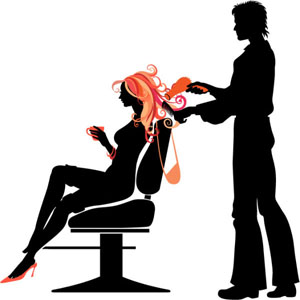I spent the five happiest years of my life in a morgue. As a forensic scientist in the Cleveland coroner’s office I analyzed gunshot residue on hands and clothing, hairs, fibers, paint, glass, DNA, blood and many other forms of trace evidence, as well as crime scenes. Now I'm a certified latent print examiner and CSI for a police department in Florida. I also write a series of forensic suspense novels, turning the day job into fiction. My books have been translated into six languages.
i don't know. It would be worth a try.
That's always a good question. Black powder or superglue will not ruin the DNA, so we can photograph the print and then swab for DNA. Usually we're swabbing areas that we wouldn't normally be able to get a print from (like textured steering wheels or rough gun grips or the edge of a plastic bottle that someone drank from) so we do one or the other.
I have never heard of that.
If there was semen on the toilet seat and it was still wet and sticky enough to stick to skin and then be transferred to underwear, then I suppose it would be possible.
Yoga Instructor
 Why don’t more men do yoga?
Why don’t more men do yoga?
Sitcom Writer
 Is reality TV here to stay?
Is reality TV here to stay?
Hairstylist and Makeup Artist
 How much am I supposed to tip my hairstylist?
How much am I supposed to tip my hairstylist?
I'm sorry, I wouldn't have any idea. You'd have to ask a pathologist.
No. There are cases and victims that I feel sorrier for than others, but nothing reaching the level that I would call emotionally involved. Everything is over by the time I get there, and then I don't usually see the victims or other parties again so there isn't an opportunity to bond.
Who knows? It all depends on where the samples were and how thoroughly the surface was cleaned. If blood was on a glass window and it was thoroughly cleaned, then all of it is probably gone for good. If it's a porous bare wood, then probably not...unless it was thoroughly soaked with a bleach solution. If it's a large area, even if it's cleaned there might still be some left in the nooks and crannies--like in a tile floor, the ceramic may be clean but the more porous grout between the tiles might hold a substance. So there is no way to say it's always possible or it's always not possible. PS Luminol helps you find blood. Christmas Tree stain is used to stain a dried semen sample on a glass slide. It doesn't help you find the semen in the first place.
-OR-
 Login with Facebook
Login with Facebook (max 20 characters - letters, numbers, and underscores only. Note that your username is private, and you have the option to choose an alias when asking questions or hosting a Q&A.)
(A valid e-mail address is required. Your e-mail will not be shared with anyone.)
(min 5 characters)
By checking this box, you acknowledge that you have read and agree to Jobstr.com’s Terms and Privacy Policy.
-OR-
 Register with Facebook
Register with Facebook(Don't worry: you'll be able to choose an alias when asking questions or hosting a Q&A.)